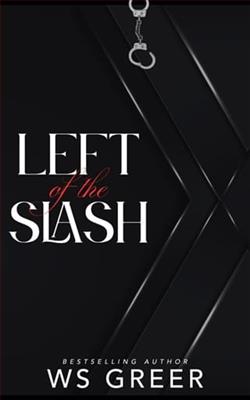Page 45 of One In Vermillion
“Wait. You said sixty thousand. Sixty thousand for a house?” I frowned at him. “Is this more charity work? Although good for you for saving Miss Evans. Because with a mortgage, I can probably afford—”
“First,” Ken said. “Stop telling salesmen how much you can afford.”
“You’re not a salesman, you’re Ken.”
“I have the heart of a realtor, which is cold and stony. Pretend I’m not Ken so you can look at this as a business transaction.”
“Because that’s how you’re looking at it? No. Come on.”
“I’m going to make a profit on this house, Liz,” he said, very serious now. “And it’s not really a property I can sell to anybody else.”
“Why not?”
“Because nobody wants to buy out here and the place is too awful to rent,” he said, and I realized the road was sloping down again, and we were in among a lot of trees, a forest really, and the road was pocked with potholes and the houses we were passing were drab and broken down. Dirt roads occasionally branched off into the forest on either side.
We were in Over-the-Hill, Burney’s poor side of town.
Not that Burney had a rich side before that damn development started going in, but most of Burney was middle-class, not the comfortable middle-class that I think has always been an illusion, but people with jobs making rents and mortgages. But then Cleve, my uncle, closed the manufacturing part of the cardboard factory twenty years ago and put everybody out of work. Now Over-the-Hill wasn’t making anything much except maybe meth.
Ken turned left off the road onto an even worse road, which explained why he hadn’t taken his Tesla. Then another turn onto what turned out to be a bumpy drive up to a very small house on stilts, set against an open space that yawned behind it, with another wooded hillside rising up beyond that. A lot of steps led up to a medium-sized porch, big enough for a couple of chairs although there weren’t any. It looked dark and deserted and dilapidated and dreary and a bunch of other bad “D” words.
But I kind of liked the way it held itself up off the ground, the way it stood alone, defying the landscape, which was wild and beautiful.Yeah, I’m not much to look at,it seemed to say,but I’m here and I’m staying here.
“It’s six hundred square feet, give or take, not counting the attic, which is unfinished,” Ken said. “Very small. But it’s insulated.”
It looked like it was falling apart, the wood siding dull brown from age and weather and dotted with the plugs from the insulation. The roof looked good, though, and Ken was talking about the pilings now, saying they were really sturdy and anchored in the rock, so that was good, too.
“What’s behind it?” I said.
“A ravine,” Ken said. “Floods during rainstorms. If you walk off the back porch in your sleep, Vince would have to use his winch to get you back.”
This was starting to sound interesting. “Let’s go see it,” I said, opening my car door.
“Liz,” Ken said, and I stopped. “It’s none of my business, but are you and Vince okay?”
“Vince and I are fine,” I said. “We’re just people who should probably live alone.”
“So he knows about this?”
I frowned at him. “No. He’s at work, and he doesn’t need me nattering at him about houses. What difference does it make? It would be my house.”
He sighed. “Do I have to keep it a secret from him that you’re house-hunting?”
“No. You don’t have to keep it a secret from anybody.” I thought for a minute. “Except Cash. Do not tell Cash. I do not want him on my doorstep some night here in the middle of nowhere.”
“Oh yeah, no Cash,” Cash’s brother said and got out of the car.
* * *
The twelve steps upto the front door were open wood, but they were sturdy; Ken would have made sure of that. Miss Evans was his kindergarten teacher, so no broken hips on Ken’s watch. But the wood siding was dark and discolored and the windows were small and the paint on them was peeling and it was really a depressing little place.
Except that it was located in paradise, lots of trees, no other houses in view, a big open space behind it, and quiet. So much quiet.
Maybe I could put bigger windows in. They were always doing that on HGTV. And paint on the outside would make a big difference. And the roof was new last year. It was a little disconcerting to see light under the house where a foundation should be—when I stooped, I could see the pilings the house was built on and a lot of open air beyond that—but Ken said everything was good down there so . . .
I straightened. “You paid for all that work on this place and you’re still selling it for sixty thousand?”
“Stop worrying about my profit,” he said. “I’ll make money. It’s worth it to get somebody in here. It’s bad to leave a house empty for too long.”















